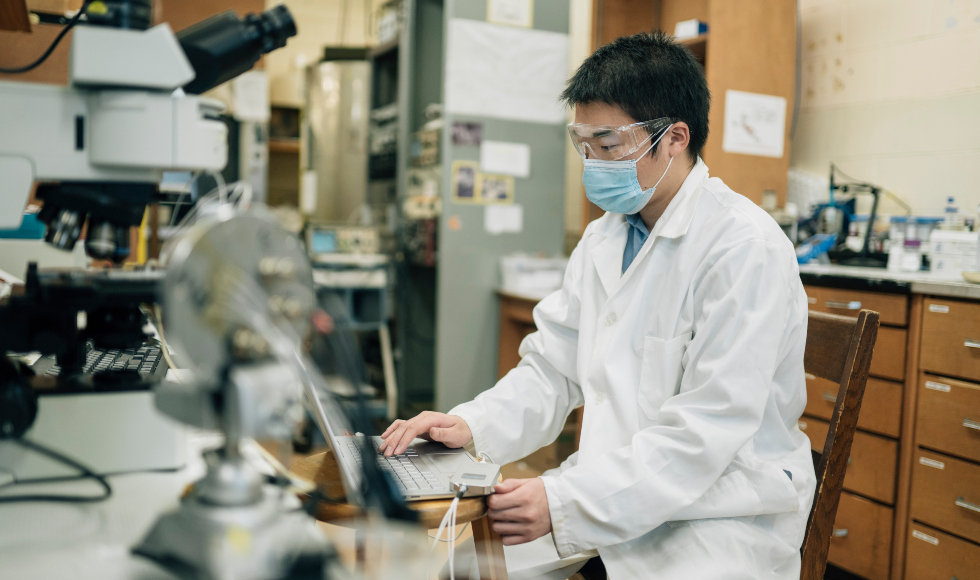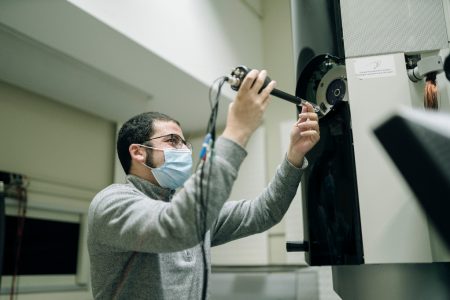Creating sustainable fuels for a low-carbon future

Chunyang Zhang, a PhD Candidate, is part of the research team awarded a total of $480K in funding as part of NRC's Clean Energy Materials Fuel Challenge program. Photo by Jin Lee.
BY Jessie Park, Faculty of Engineering
December 10, 2020
Researchers at McMaster University are partnering with the National Research Council Canada (NRC) to make Canada’s energy economy more sustainable for generations to come.
The multidisciplinary team of engineers and scientists recently received $240K in funding for two years as part of NRC’s Materials for Clean Fuels Challenge program.
The team’s project focuses on understanding and advancing technologies which use renewable energy – hydro, wind or solar – to produce fuels and chemicals to power communities.
“Transitioning to a sustainable energy economy is a must for preserving our environment and mitigating the devastating effects of climate change,” says Drew Higgins, an assistant professor in Chemical Engineering and one of four McMaster researchers spearheading the project.
“NRC’s support provides opportunities for graduate students to become involved in this growing, interdisciplinary program, exposing them to the broader suite of research being undertaken as part of the Materials for Clean Fuels Challenge program. This is an incredible training opportunity for McMaster graduate students,” he adds.
In the lab, the team works on building new materials that can convert carbon dioxide into useful fuels and chemicals. Ultimately, the team hopes to create and deploy technologies that will help Canada to transition away from carbon-emitting energy processes.
“This grant will allow us to work together with a team of exceptional scientists at McMaster and NRC to use these tools and methods for creating impact outside the laboratory for a more sustainable future,” says Leyla Soleymani, an associate professor in Engineering Physics and Canada Research Chair in Miniaturized Biomedical Devices.

Research Officer Robert Black, who earned his PhD in Chemical Engineering from the University of Waterloo, will be the research group’s lead scientist from NRC.
The research is also made possible by facilities such as the Canadian Centre for Electron Microscopy (CCEM) at McMaster University and the Canadian Light Source in Saskatoon.
“We are delighted with this collaboration with the NRC to advance and deploy microscopy techniques to study energy catalysts in action in pursuit of solving one of our biggest challenges for the environment: the development of clean fuels,” says Nabil Bassim, CCEM’s director and an associate professor in Materials Science and Engineering.
An investment in research of this nature demonstrates Canada’s commitment to a low-carbon, sustainable future, says Adam Hitchcock, a professor in the department of Chemistry and Chemical Biology and an associate member of the department of Materials Science and Engineering.
“With NRC and McMaster’s support, we have the ability to generate new knowledge that will be crucial for driving our world towards sustainability – this is what excites us most about the research,” he adds.


